I will not summarize what I wrote before in part 1. Just to keep the thread going , we met two families of economics and finance professors – four professors and two teenage kids. We traveled with Jin , myself and two teenagers in one car, and the four parents traveled in a separate SUV. These people were going to experience something brand new.
Like what? They said they are going to Barbecue on the Chinese prairie and then go to a rock concert! All this seemed like a novelty item for them! We drove through some flat grassland out of Beijing and parked our car in a very large field with about two hundred cars. They were all Barbecuing, American style (with Chinese spices and condiments). The professors, all of whom spoke decent English, told me that for the Chinese who hardly owned cars fifteen years ago, just to see a couple hundred parked cars and the middle class families doing barbecue like they have seen on TV in the USA, is like a freaking fantasy come true. China is changing fast, they told me. Compared to what their fathers lived like, their standard of living has gone through the roof! The two teenager boys spoke excellent English, better than their parents. Parents, specially moms, really doted on their single children. One of the teenagers had his own drone – a real one! He flew it while we were there, drawing some serious envious looks from the spectators.
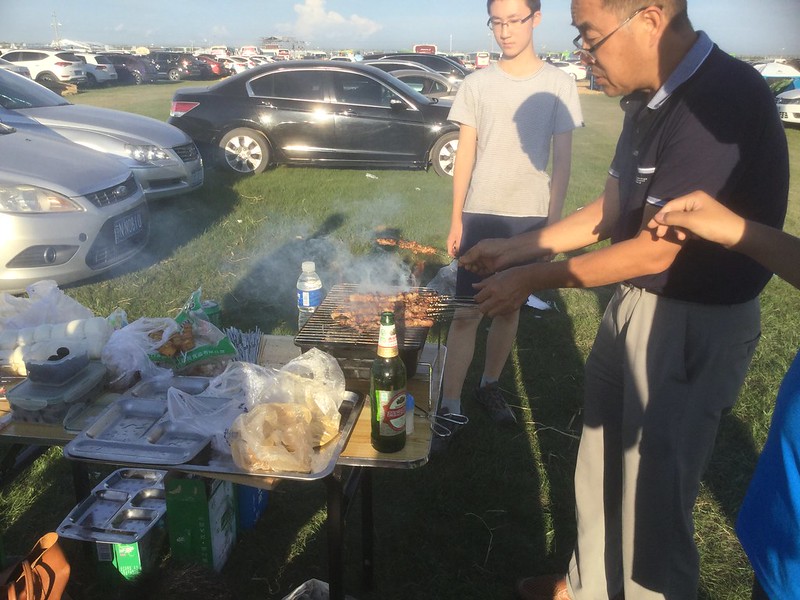
Barbecue on a picnic ground – they want to be just like Americans!
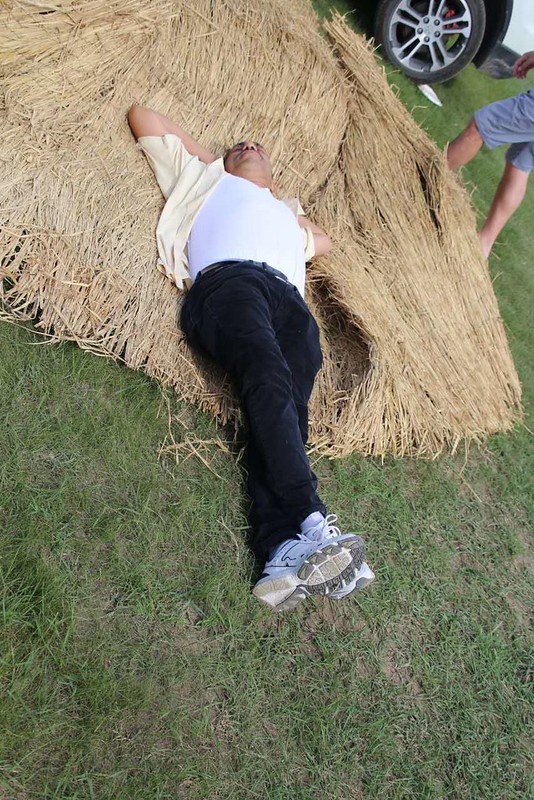
As you can see above, I was totally relaxed during this picnic. Beer also helped:
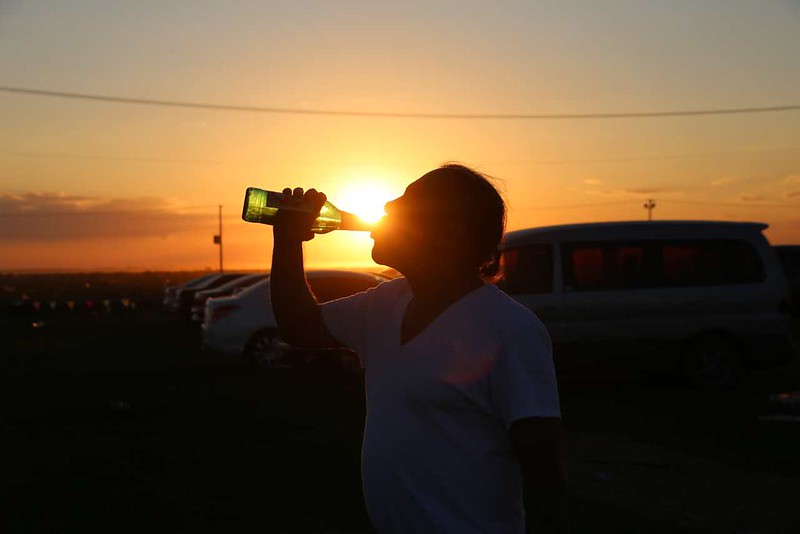
The rock concert happened in a field right next to this place. The music scene in China is totally different from other Asian countries. Because of censorship of Western media and restrictions on social media, the Chinese youth did not have much access to Hard Rock, Techno, Hiphop or Rap Music. Only pop music was allowed by the government. So it was like an underground scene where people downloaded music secretly and clandestine clubs that played them behind closed doors. On the other hand, Chinese rock has always been tightly controlled by the government – any lyrics related to social injustice or social reform or drug use or explicit sexuality are not allowed since 1990’s – so it is pretty bland.
None of the four professors I met were personally interested in Rock or Hiphop – not at all! In any case we all walked over to the concert in the evening. There were several security checks, I heard people calling me “Laowai” – a slang for foreigner! I have been to only a few rock concerts in USA- there is a lot of energy among the audience as well as blatant sexuality and rampant drug use. Here, there was none of that, the women were wearing regular shorts and t-shirts, nothing remotely provocative by Western standards. The stage was impressive though as well as the sound system! The lyrics were in Mandarin:
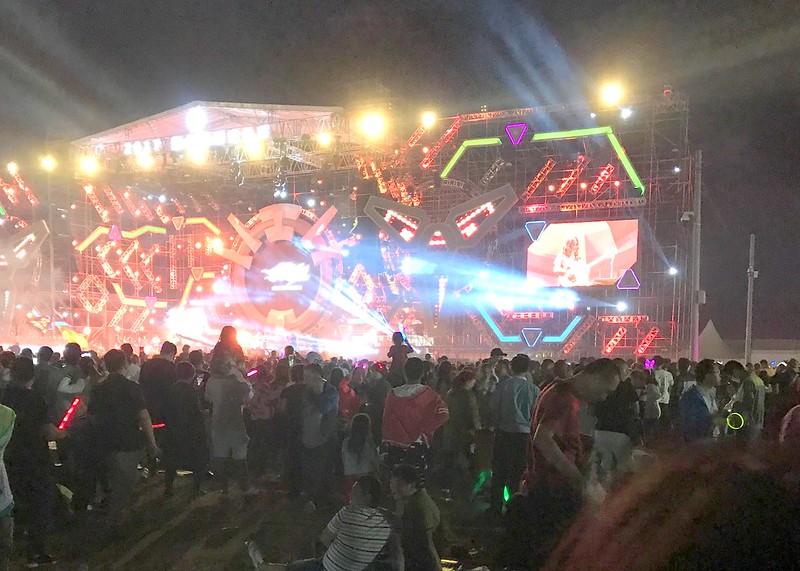
The next day, we all drove through what is called “the heavenly highway” – it was a beautiful mountain road with lush green valleys on each side. On top of the mountain, one of the city teenagers gingerly rode a pony, I got on to a goat ride to have my picture taken only (did not want to torture the poor goat!). The scenery was very beautiful, indeed!
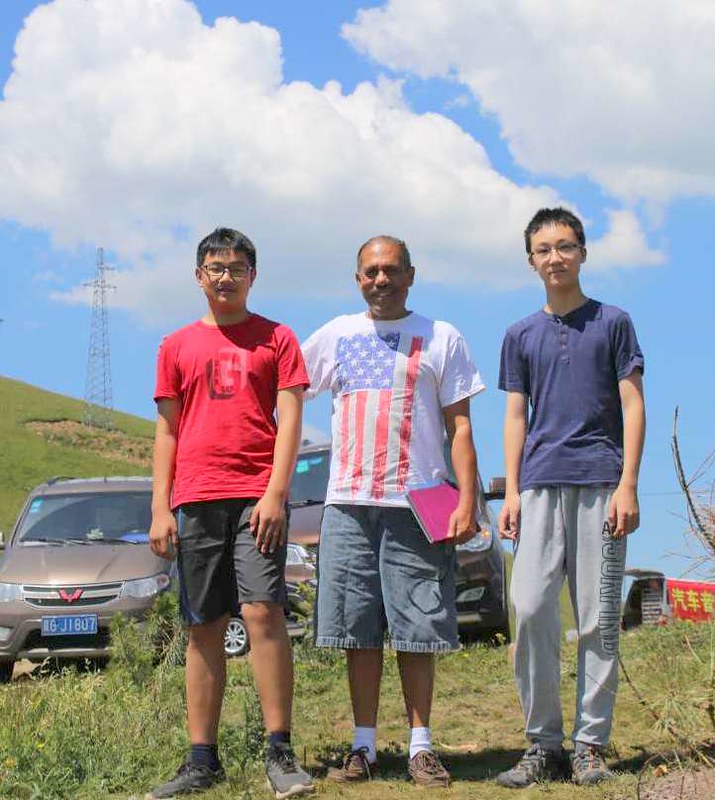
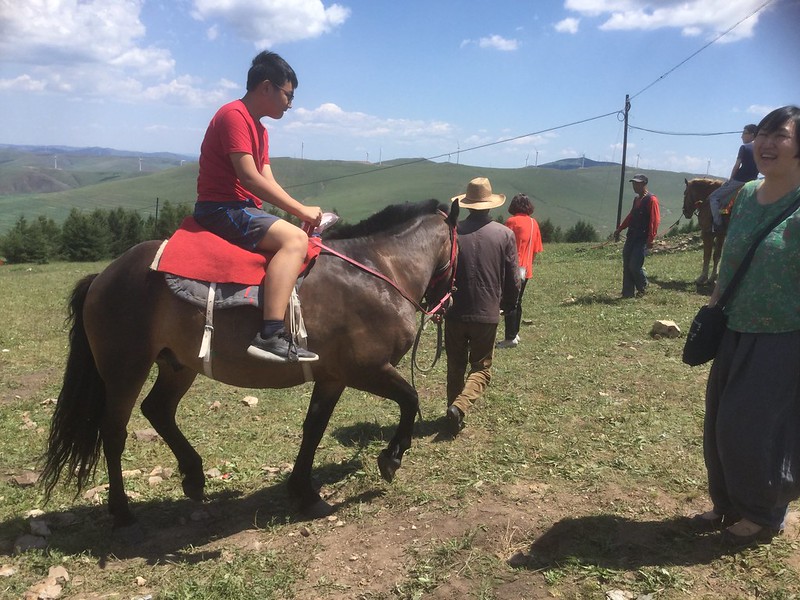
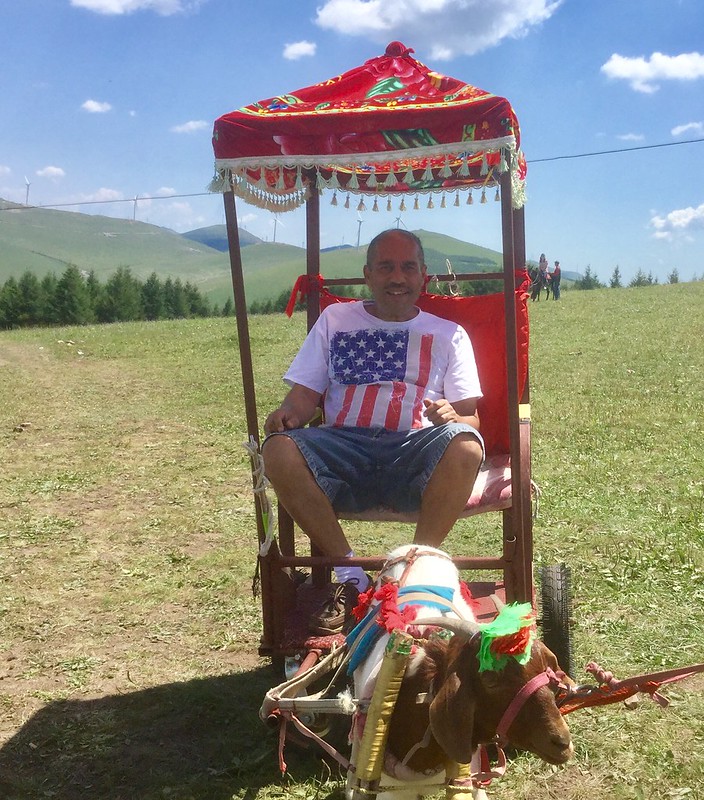
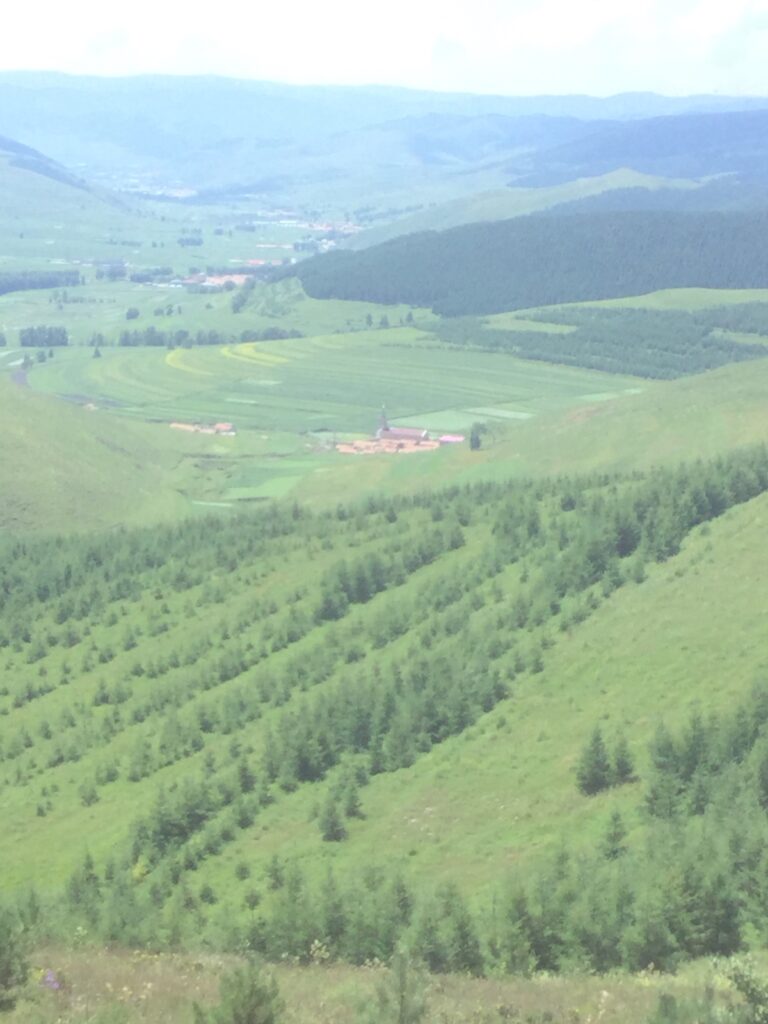
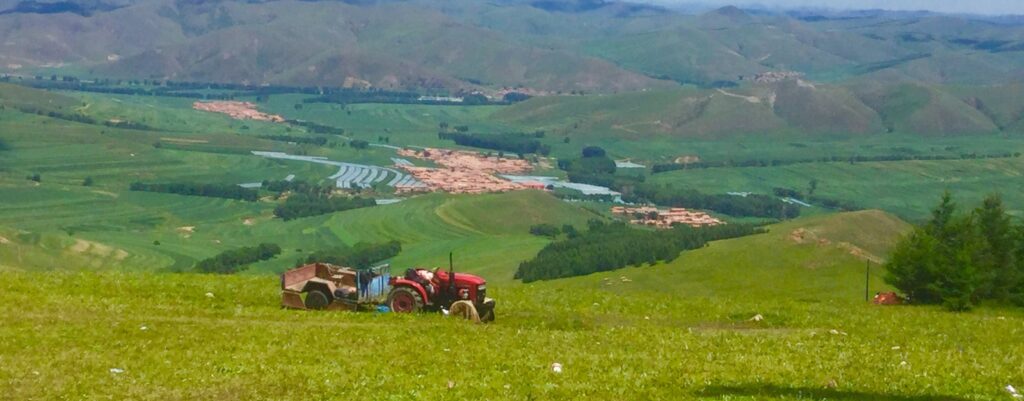
We went down to the village that you can see in the above picture and had lunch at a colorful village restaurant.
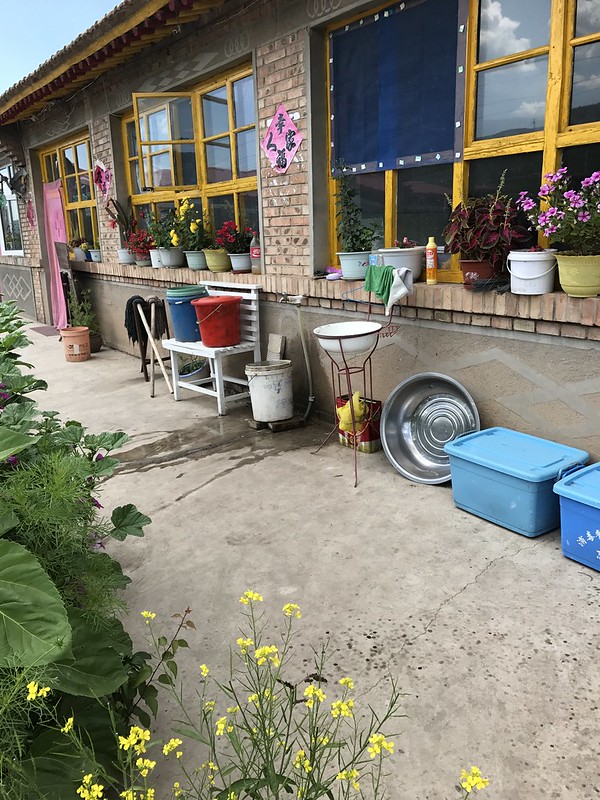
Chinese villages are also changing fast. Since China is a vast country, with all kinds of topography and weather, different strategies have been adopted for different places. For some villages, I heard that the government built roads blasting several tunnels through mountains so now it takes two hours to commute to a city rather than one whole day through steep mountain roads, For some , new irrigation projects and new crops that the farmers never heard of before. The government even has a project to transform part of the Gobi desert into a green valley. I am not well informed on exactly what is happening in villages in this huge country, but around Beijing and nearby Hebei province, villages appear to be deserted. The old farmhouses, built with handmade bricks, are still around, but most of them are empty. My guess is that most of the residents have been relocated to towns with large manufacturing facilities, and only a few people are left in the villages to actually farm the land with modern equipment. There was a feeling of abandonment when we drove through the empty villages with crumbling red brick houses.
After our drive through the “heavenly highway”, the professors and their families parted ways, and Jin and I went separately for the rest of our vacation. Professor J had a lot of activities carefully planned for the next few days. The same day we drove for a while and arrived at a Hot Springs Resort. This appeared to be a remnant of a facility from the Communist era, although I am not sure.
Let’s compare the lobbies
First the hot springs lobby with its fake trees:
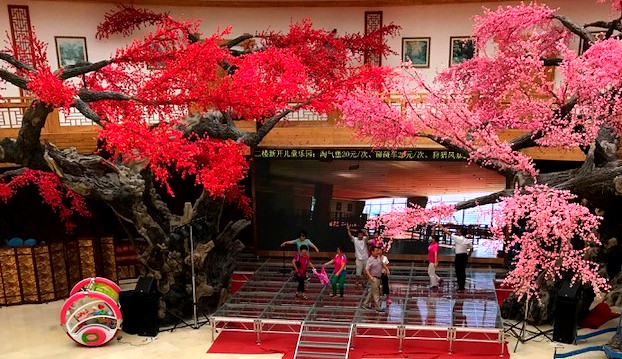
Next, a brand new hotel where we stayed earlier:
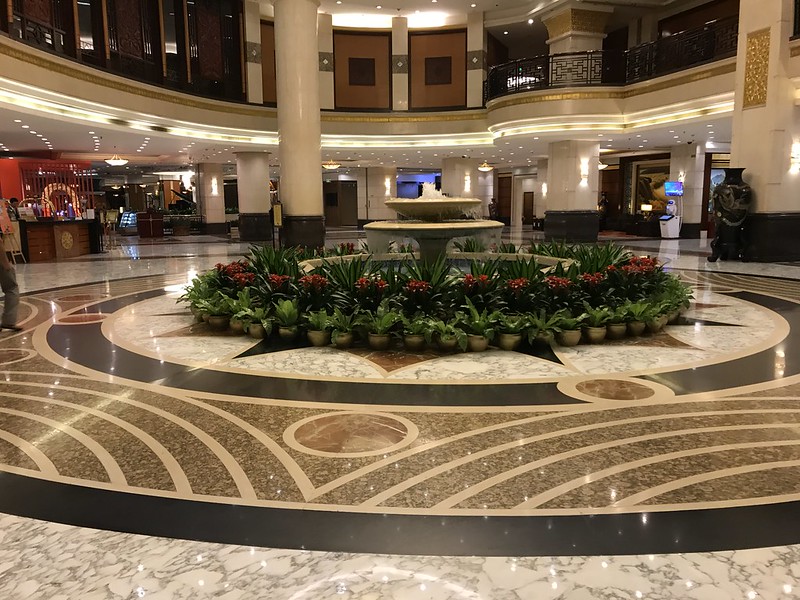
Both are nice, but you should see the difference in style!
The hot springs had small reservoirs for soaking, we should have spent a couple of days there, but we left the next morning after breakfast.
Next day, after a few hours of driving, we arrived at a beautiful state park in Hebei province.
It was essentially a scenic, albeit steep, trail through the forest. I met a little friend there on top, as well.
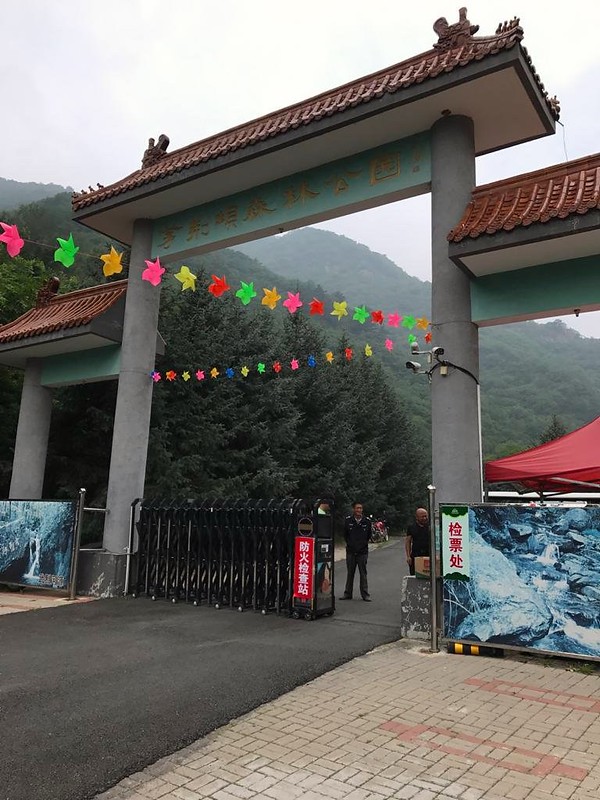
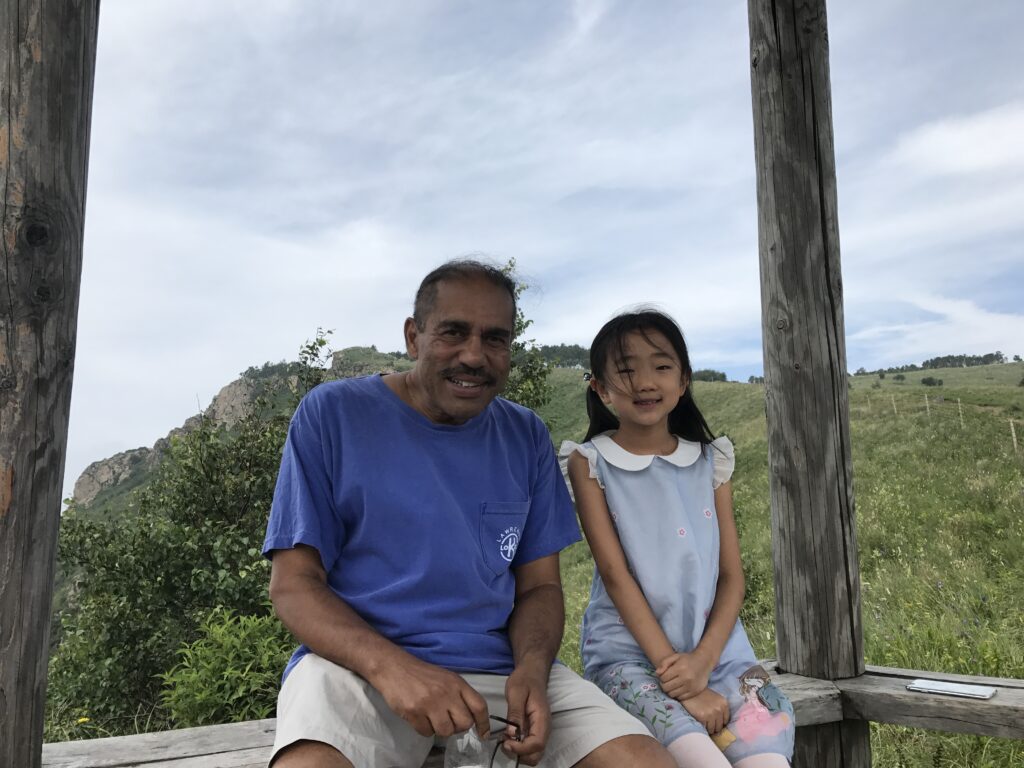
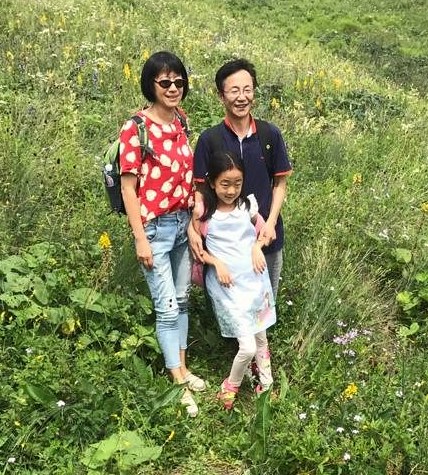
We met this couple in their mid- forties, who both worked in IT – Jin told me they were loaded. The daughter was really the apple of their eyes because of the one child policy. The woman told me she had her daughter when she was thirty-nine years old. Both parents, specially the mother, watched her every move, and really adored her. She was a cute girl and spoke a little English, I had fun chatting with her.
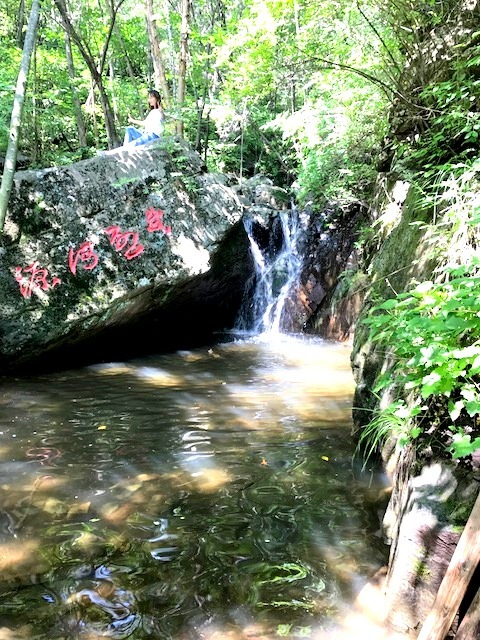
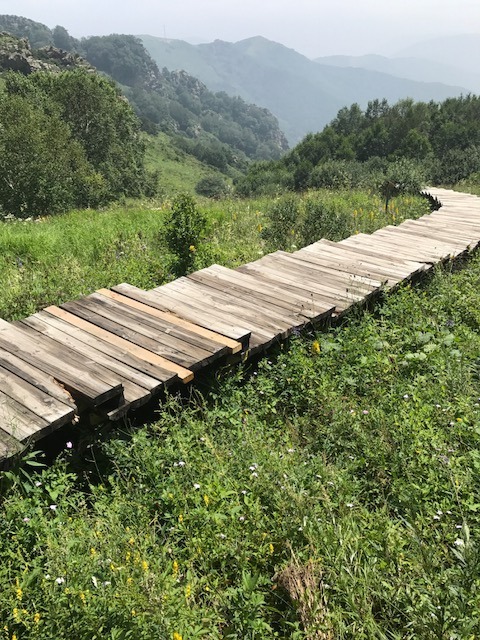
The trail was steep to walk up, fun to come down!
The next day, we went to an older town called Chengde (not to be confused with Chengdu, famous for its Pandas)
At Chengde, we went to Putuo Zongcheng Temple, which is actually a Tibetan style castle, but built by the Chinese Emperor in Beijing. Jin wanted to see it because of its fusion architectural style. I could not really see anything much different from the standard Chinese castle except a lot more Buddhist emblems and the statue of an elephant in the courtyard – unusual for Chinese architecture .
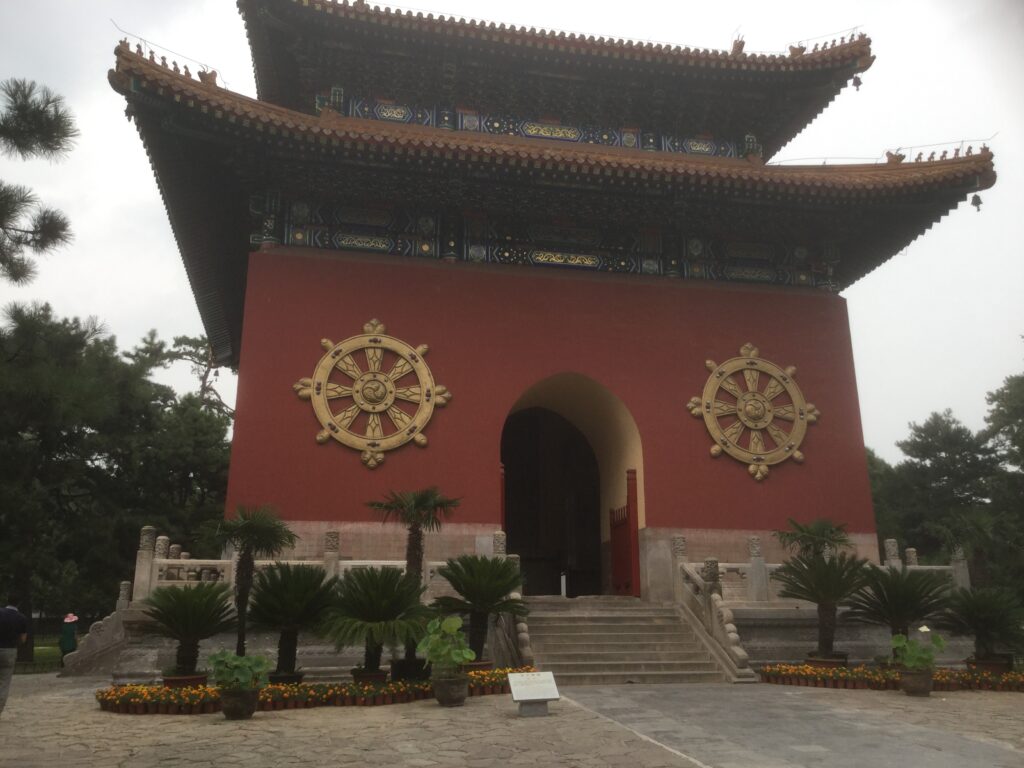
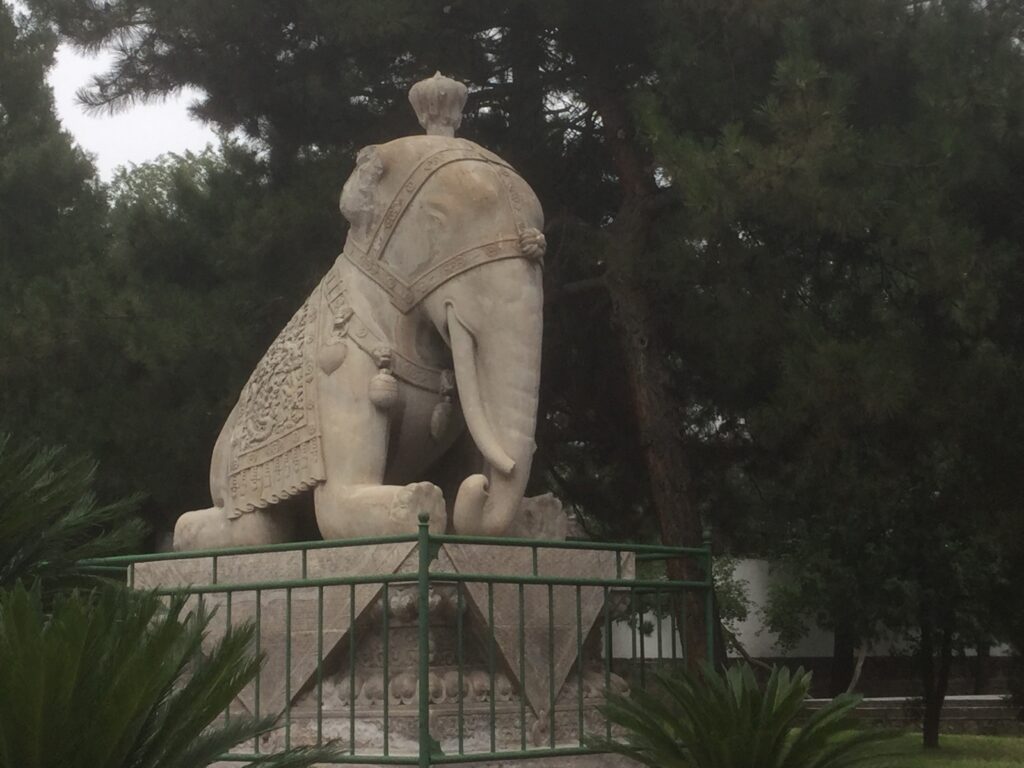
We spent the night in Chengde city, where some of the old neighborhoods are preserved because they are on the hillside. It was fun to go through narrow lanes and tight parking spots and to see a large ugly wall right next to our hotel window!
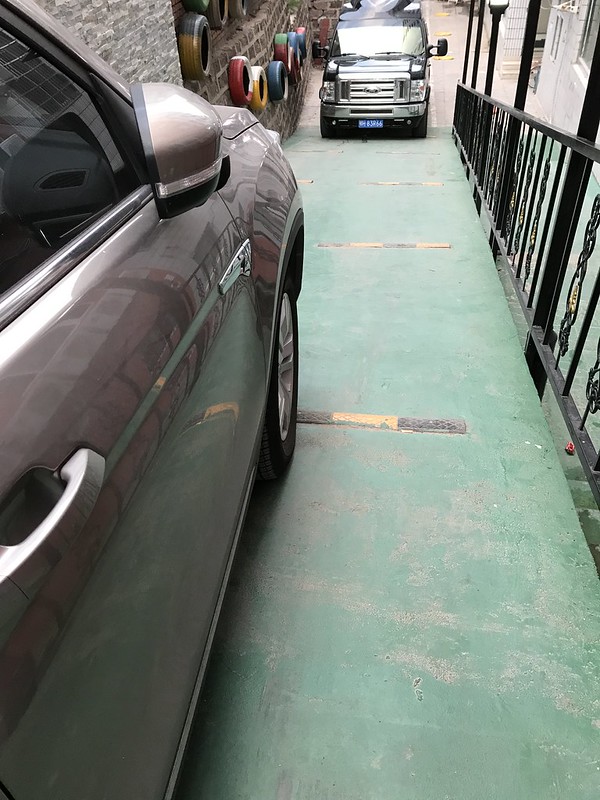
Cars parked on a steep slope in Chengde.
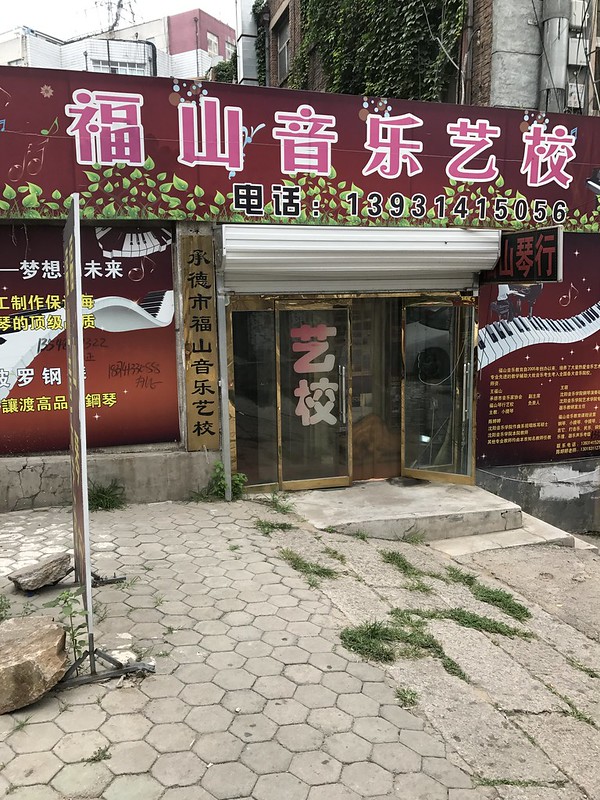
Traditional Chinese Bakery on a hilly sidewalk
We drove next day to the other side of Heibei province to a really mountainous place and stayed in a resort there for our last two nights. We drove for many hours on what appeared to be brand new super highways. Jin told me that a lot of these highways have been built during the last two or three years, thousands of kilometres of highways all over China. The quality is absolute top-notch, actually better than many US highways some of whom are currently crumbling. I could see new ones being built as we drove along. The word “massive”, that I have been using frequently here, is actually appropriate for the Chinese construction machinery. The cranes, the bridge-building machines and the bulldozers are all multiple times bigger than what I have seen in USA. Even the rest areas are just like in the Western countries, the old style stores and restaurants are not allowed on these new highways.
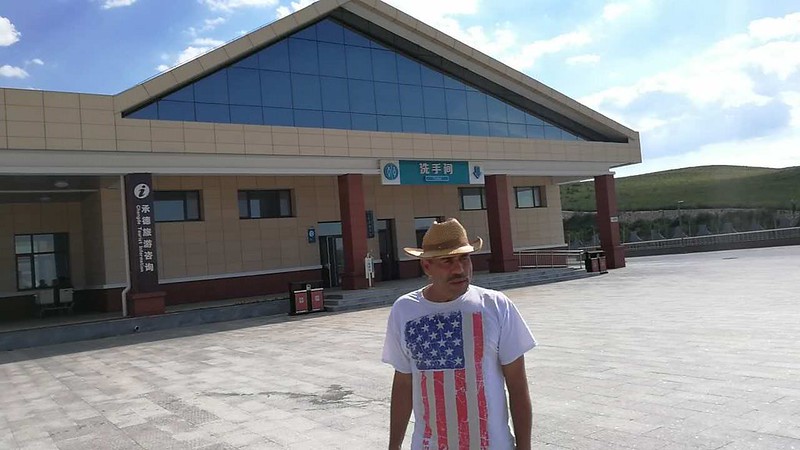
Brand new rest area on a brand new highway!
And of course, the tunnels! Building tunnels is expensive, so in most countries , tunnels are built for strategic reasons like going through a mountain when going around it will involve dangerous driving or when going around is not possible because of gorges and lakes around the mountains. The Chinese government has built tunnels like crazy on these modern highways, apparently without any regard to the high costs. Jin and I counted nineteen tunnels on a roadway stretching about 300 km. Some were small (200 m), some not so small, and there was a monster tunnel stretching for six kilometres under the rocks. Obviously, they had spent a massive amount of money doing this, but this road connected Beijing to a mountainous area of Hebei province which is sparsely populated.
As a result, nice resorts have been built in the mountains. We stayed in one of them for two nights. Now that people from Beijing can drive to here in about three to four hours (as opposed to twelve hours on treacherous roads before), this has become a popular weekend destination. Since we were there in the middle of the week, it was not crowded at all.
We drove around and enjoyed the scenery. Even now,this place is sparsely populated.
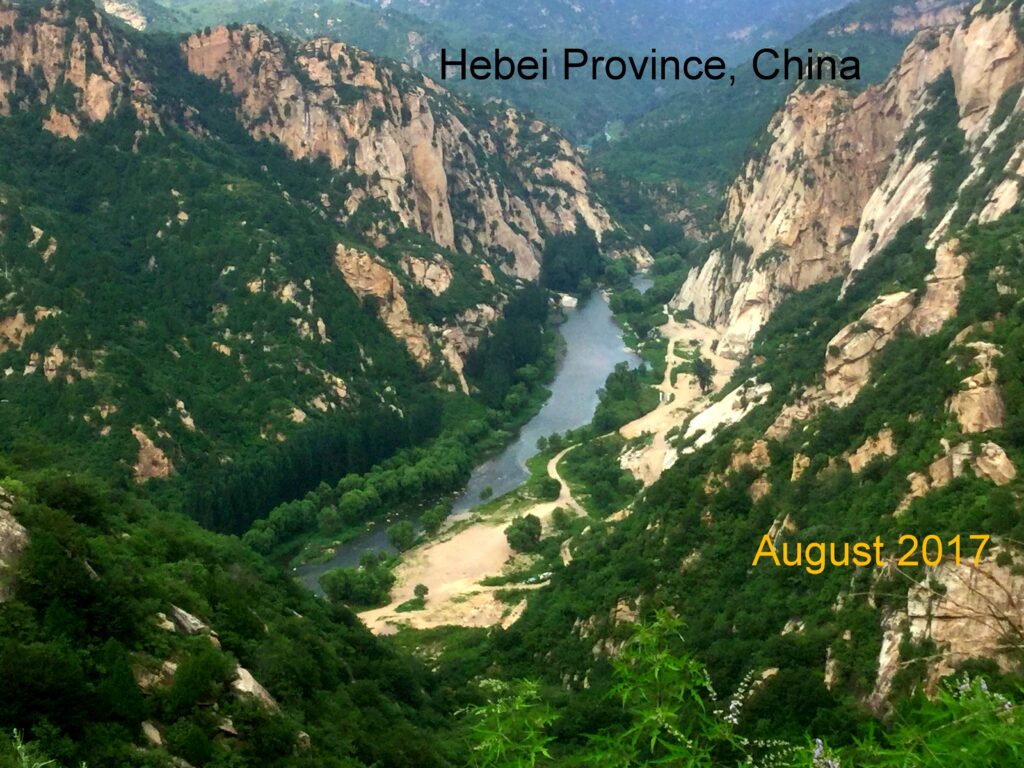
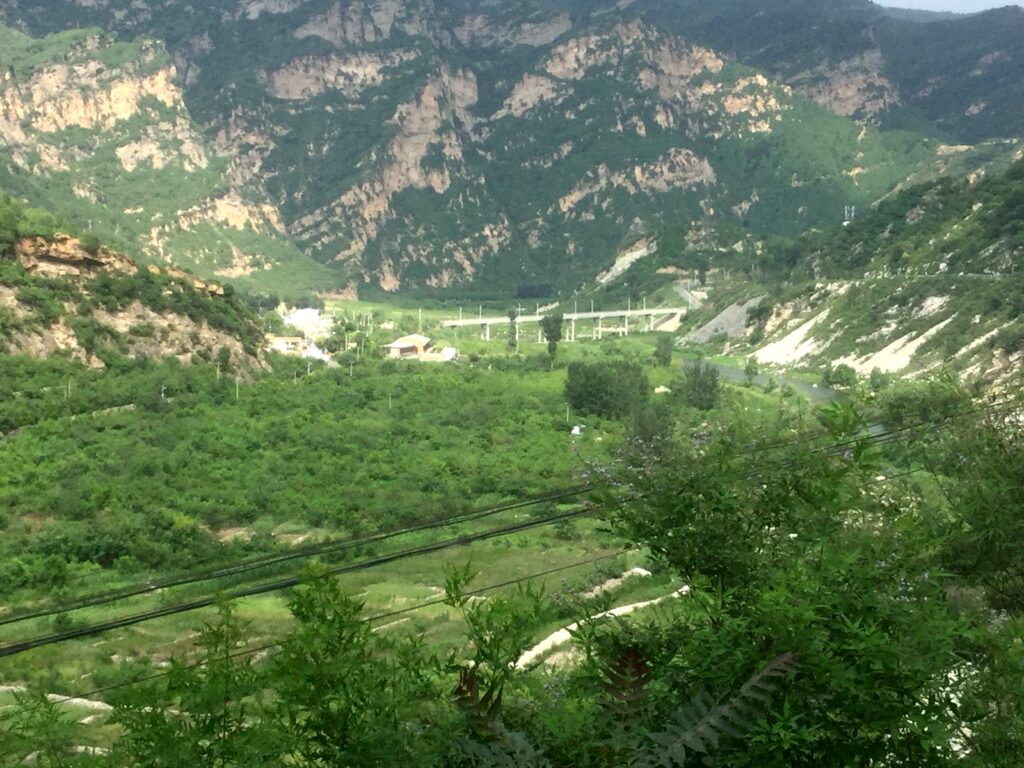
As you can see above, not too many people live in this valley.
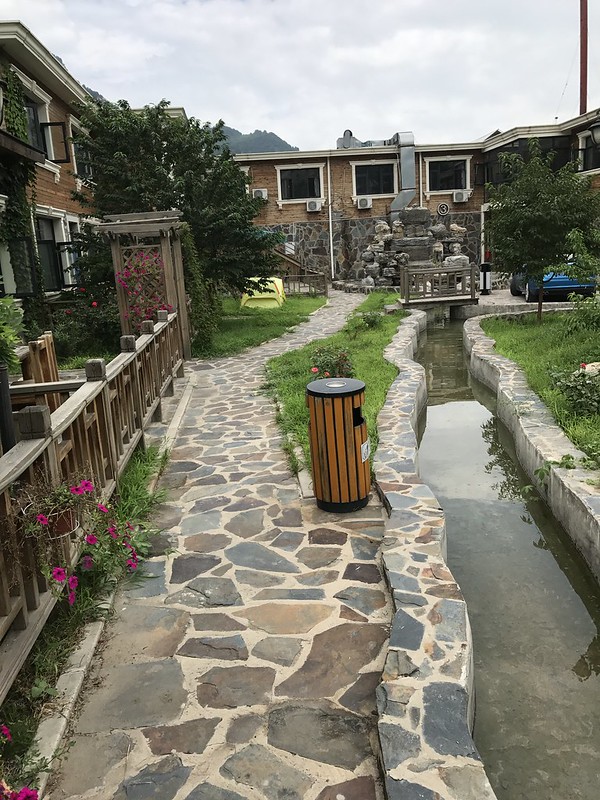
Cute Little resort on top of the mountains
I had hot pot with whole fish – head and tail and all – for dinner. Jin thought I would freak out, but I am a fish-loving Bengali, fish heads don’t freak me out, I broke parts of the head and ate them – Jin was impressed!
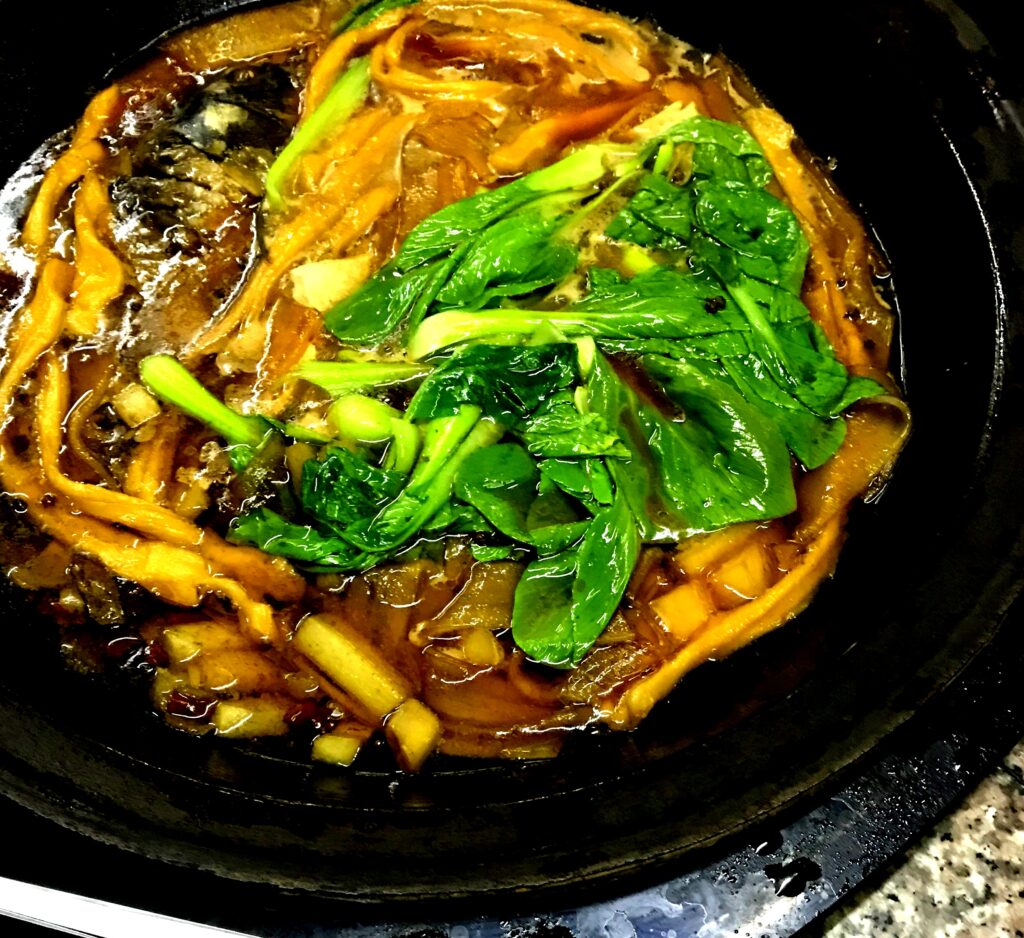
In the photo above, there are noodles and veggies in the broth, the whole fish is submerged in the left side of the pot.
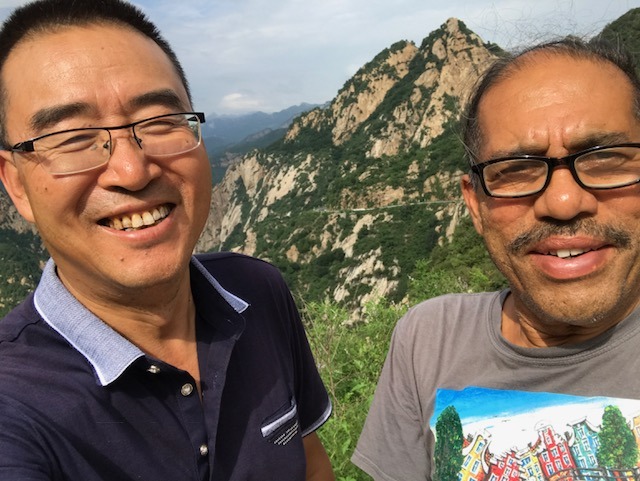
Finally , bye from China! Thanks to my friend for organizing a wonderful trip and let me join him. He did all the driving!!
